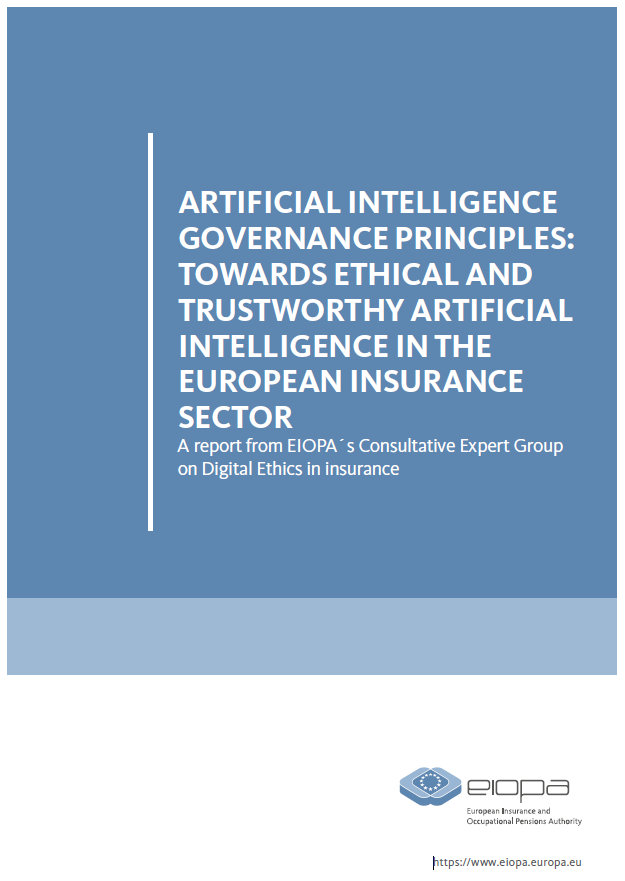“From the Executive summary
- “The advent of new technologies such as artificial intelligence (hereinafter “AI”), cloud
computing or the internet of things (hereinafter IoT), coupled with the increasing availability of data in today’s digital society and economy, are enabling opportunities for future
growth and development in the insurance sector… “ - “… The benefits arising from AI in terms of prediction accuracy, automation, new products and services or cost reduction are remarkable.
However, there are also growing concerns amongst stakeholders about the impact that
the increasing adoption of AI could have on the financial inclusion of groups of protected
classes or vulnerable consumers or on our society as a whole….” - “…With regards to the use of AI in insurance pricing and underwriting, the report includes
guidance on how to assess the appropriateness and necessity of rating factors, noting
that that correlation does not imply causation. Insurance firms should also avoid certain
types of price and claims optimisation practices such as those aiming to maximise consumer’s “willingness to pay” or “willingness to accept”…” - “…Finally, the report is based on the state-of-the-art of AI at the time of its publication. The
GDE acknowledges that AI is an evolving technology with an ever-increasing number of
applications and where extensive research is on-going. This is, particularly, the case in the
area of transparency and explainability, as well as in the area of active fairness seeking to
develop fairness and non-discrimination metrics to assess the outcomes of AI systems.
As these areas of application and research evolve, the recommendations included in this
report may also need to be revised in due course.”





